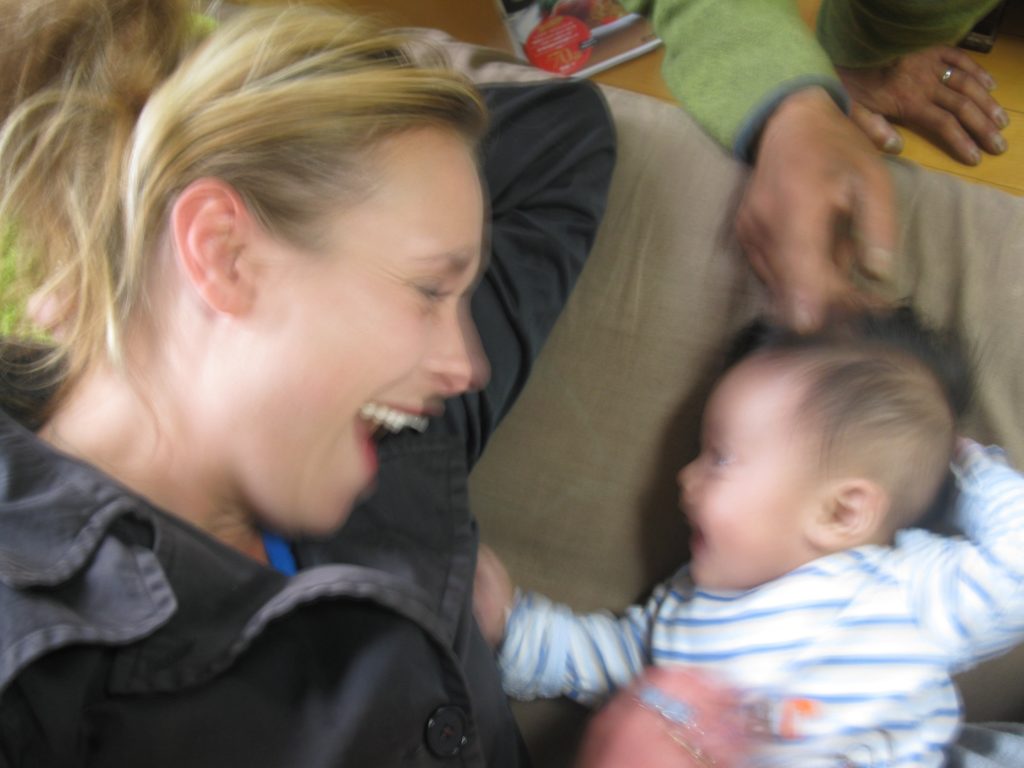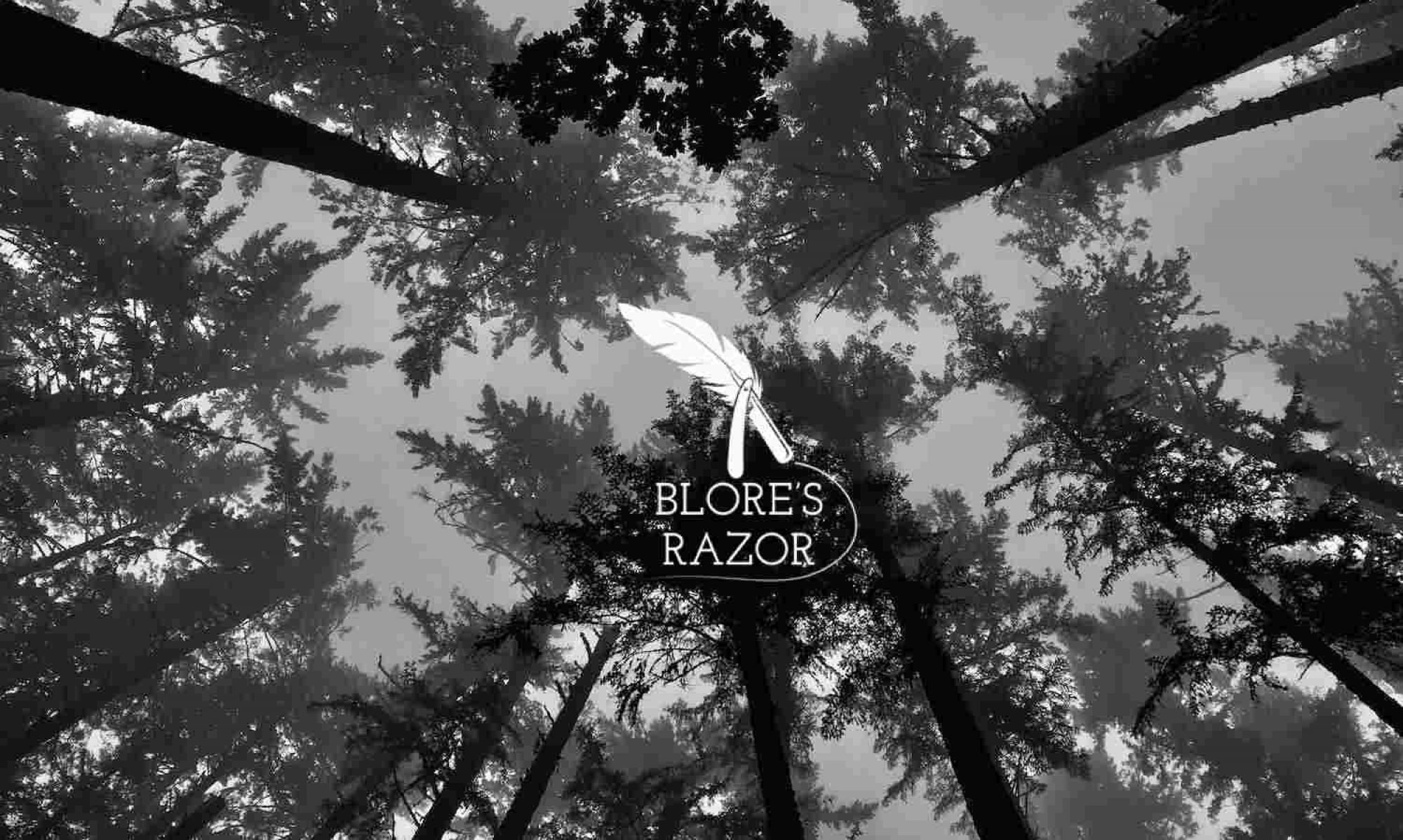“First Comes Love, Then Comes Marriage, Then Comes…”

After getting married last year at age 34, the most common question I get is, “So, are you thinking about having kids?”
Sure, it’s a more delicate line of inquiry than in generations past, when it was assumed that every woman’s life ambition was to have children—not a matter of if but when. Back in those days, getting married and having kids was endemic to a woman’s survival when we were all but excluded from universities and the most lucrative jobs.
At 35, my answer is still maybe. Unlike some, I feel zero baby fever—in fact, call me a monster but I find babies gross, loud, boring, and frankly parasitic, especially on their mothers’ bodies, brains, and sleep patterns.
I took care of three kids (ages 14 months, three years, and five years) during the summer I was 16. Being the baby’s full-time custodian wasn’t as difficult as it was tedious—reading the same picture books, being attentive to her minute-by-minute needs, repeatedly picking up the books she’d thrown from the shelf, changing foul diapers and contemplating how many thousands of my own plastic diapers from the 80s must be still decomposing, rocking her to sleep on a pillow for naps and laying it ever so gently into her crib. (She refused to go to sleep unless she was physically in my arms.)
People say, “It’s different when it’s your own,” but I call bullshit: I think some U.S. mothers simply can’t admit how much they despise their young children. A component of postpartum depression is a mother’s realization that her old life is gone. American fathers have the luxury of being more honest about their indifference—especially toward babies—although I admit that men today are much more involved in the process than they used to be.
So what are the common reasons for wanting to have children?
One person told me it was an opportunity—maybe even a public duty—to shape a mind for the next generation, to pass on the best of my accumulated knowledge and sense of civic responsibility for the betterment of our collective future. I reject this premise. I can shape many more minds by becoming a teacher (been there), mentor (done that), or artist (working on it).
If you think about the people who have inspired you, are your parents at the top of your list? Parents in the U.S. seem to do a lot of work for very little credit. They don’t have the same respect afforded to elders in Japan, for example, or in Latin American cultures. For many, an American therapy session is just a bitch-fest about how awful a person’s parents were and how a person can overcome all of the limitations of their upbringing. I don’t want to be the subject of my unborn child’s therapy sessions.
Another person asked me who will take care of me when I get old. That’s easy: I’ll pay someone to do it, just as many elderly people—even those with large families—do. Having children and grandchildren in this individualistic youth-obsessed society doesn’t guarantee you won’t die alone. In fact, I’ll feel better about having a stranger wipe the soup from my mouth than having to reverse roles with a child I raised and compromise my dignity.
Plus, how many of us still feel truly connected to our parents? The majority of children take much more than they will ever return and many in my generation continue to do so; a third of my fellow Millennials have boomeranged back into their childhood homes to live cheaply. I wonder how many of those parents are happy to have their adult children home. And even for those who manage to live independently, the reality of American culture is that young people follow the jobs, often in places far away from their parents, only to return once or twice a year for holidays, often begrudgingly so. And many Americans consider calling their parents a chore rather than a joy. I’m fortunate that my mother is a vibrant, smart, continually evolving person and I enjoy her company, but others are not so lucky.
I actually asked my mom how she would feel if I didn’t have kids. At first, she said she would be fine with whatever decision I make, but she later revealed she’d actually be disappointed because I’d “never fully understand everything [she] had to go through.” I told her, “Actually, opting out of parenthood is precisely a recognition of everything you had to endure as a mother.” (After publishing this piece, my mom clarified what she meant. She told me that when a person becomes a parent, they truly understand unconditional love and this produces a new appreciation of one’s own parents—and a closeness that comes from that shared experience.)
A couple of weeks ago, my best friend told me about her family friends, an older childless couple, who now regret not having kids. This is the one that stumps me. There’s no guarantee that Jon and I won’t someday be reading in rocking chairs on the porch of our beachfront house and wonder, “What if? Wouldn’t it be lovely to have some grandchildren around?”
I agree. I would love to have grandchildren to spoil for a weekend and hand back to their parents. I also would love to be a modern American father—involved and loving but not leaking from my tits for a couple of years. For men, it’s a bonus if they opt into the parenting process; for women, it’s a necessity—and they’re judged mercilessly every step along the way without a shred of institutional support.
Maybe I’m just not wired for motherhood. I’m sensible and responsible to a fault, but I lack the desire to have my life—which I love—subsumed by the needs of another.
Growing up with a single mom, I also was exposed to the hardest version of motherhood, which I acknowledge is a bias. And as an only child, I’m used to lots of time alone. I love my solitude and unless I got an expensive live-in nanny, that would be gone for at least a decade.
I think about fostering or adopting older kids. Perhaps it’s just babies and toddlers I don’t care for. I simply don’t want to be a janitor for a human—I want to be a teacher. (And I’m not talking about the dull instruction of object permanence, the ABCs, and shapes.)
All of this said I’m still a maybe. I have one friend who continued to play kickball with us until she was 39 weeks pregnant and unlike many new parents, she and her husband, a pediatrician, continue to host gatherings at their home and meet up for events. This version of motherhood gives me hope. It’s so damn cool and inspirational when women don’t make a fuss and continue to have lives outside of being mothers.
My real fear is that I will end up with a needy little parasite who will deprive me of all I hold dear in this life: reading, writing, traveling, my friendships, and sleep. Above all, putting my career on hold to pay thousands of dollars to stretch and ultimately tear open my body to perpetuate my genes is too horrible to contemplate—and that’s only step one. There’s no guarantee that my kid won’t be a criminal or worse, an asshole. I don’t like that roll of the dice.
At my bridal shower, my aunt told me not to wait to have kids or I’d never do it. Perhaps she was right. I’m just grateful that the days of assuming that parenthood is part of a complete life are over.

Amen, my love! I don’t like that roll of the dice either. And your response to your mother is EXACTLY like the one I gave my mother when she asked what she did wrong to make me not want kids. I told her “you did everything RIGHT, and I know I’m not capable of giving a child what you gave to me.” Some of us don’t feel fulfilled turning our entire lives over to others.
Thank you! I’m happy it resonated with you.
Well Jocelyn, I used to think very much like you do. However, we got an unexpected surprise and it turned out to be the best mistake I ever made. (she knows this story by the way) Dwelling on the first few years of life is to miss the part about….Wow where did the time go you were just crawling on the floor and now you are graduating High School. It goes by very fast. And every age has its joys and its negatives. And take if from a baby boomer, you don’t have to end your life. The child goes with you where ever. The only thing we did was buy a VCR, which in 1984 cost $650 – a real stretch in the budget- so we could watch movies. Babies in movie theaters are difficult, but our baby/child/daughter went everywhere else with us. Granted we didn’t do any mountain climbing but we did some really great hikes with her on our backs. Don’t over think parenting. It is mostly about being a good example and watching for signs of what the child is really good at and helping that along. It is singularly the most rewarding thing I have ever done except for being a grandparent.
I’m happy you’re content in your decision but I’m also realistic about the sacrifices, especially of being a mother as opposed to a father. We love to read, travel, and create art and many of our dreams would necessarily be deferred. Life changes after kids and I know I can’t have it all. As I mentioned in the piece, I don’t enjoy the tediousness of spending time with babies or small children (or even adults with small minds). Some people are delighted by their antics; I’m typically not. In short, parenting might not be the best fit for me and Jon. Nothing is set in stone, but I’m grateful that we’re considering the childless path.
I am truly not tying to change your mind. There is nothing wrong with deciding not to have children, many couples choose that path as we originally did. However, for us it was not a decision, it was an accident. We were forced into it. And I do not regret it for one second. Also I am not just content I am joyous and the amount of love I feel for both my daughter and grand daughter is overflowing and the sacrifices, although none come to mind, are insignificant compared to the unbridled pleasure I get from both of them. But I still am not a fan of other peoples children.So having a baby did not turn me into a lover of small children. But the small child doesn’t last very long. Our grand daughter is already two. Watching her and helping her grow and learn are all amazing gifts. So while I understand the logic of it, having a child is more from love. And yes fathers have some distance from all of that messy stuff but there is a bond between mother and child that no man can or will ever understand. And that is not to say that there aren’r wonderful fathers out there but it is different and amazing being a mother. But again I am not trying to change your mind I just wanted to be clear, I am not resigned to my fate I rejoice in it.
Kids are the best thing ever!
Oh shit my baby boy woke up, gotta run. Not even kidding!
Hope all is well Joce
Mike